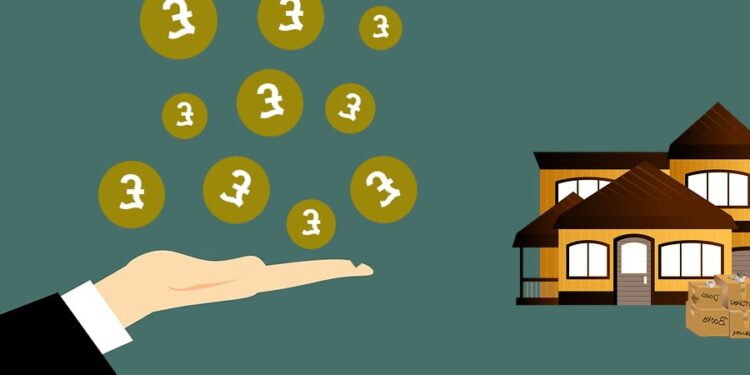Selling a house can be a complicated and stressful process, and it’s important to be prepared for all the costs that may come up along the way. While the potential profit from selling your home can be exciting, it’s important to remember that there are also a number of costs involved in the process that can eat into that profit.
In this blog post, we’ll take a look at four key areas where costs can arise when selling a house: repairs and renovations, real estate agent commissions, closing costs, and marketing and advertising expenses. Understanding the costs involved in selling a house can help you budget and prepare for the process and ultimately make the experience a smoother and more successful one.
Costs of repairs and renovations
When selling a house, it’s important to make sure that it is in the best possible condition before putting it on the market. This often involves making repairs and/or completing renovations to improve the appearance and functionality of the property. Some common repairs and renovations that may be necessary before selling a house include:
- Fixing any damage or wear and tear, such as replacing a broken window or fixing a leaky roof
- Updating the kitchen and bathrooms, including replacing outdated appliances or fixtures
- Painting the interior and exterior of the house
- Landscaping the yard to improve curb appeal
The cost of repairs and renovations can vary widely depending on the extent of the work that needs to be done. It’s a good idea to get estimates from contractors to help you budget for these expenses. Keep in mind that some repairs and renovations may be tax-deductible if they are considered necessary for the sale of the property. It’s always a good idea to consult with a tax professional to determine what expenses may be deductible.
Real estate agent commissions
If you decide to use a real estate agent to help sell your house, you will be responsible for paying a commission. The realtor fees in Florida is typically a percentage of the house’s sale price, and it is usually split between the listing agent (the agent representing the seller) and the buyer’s agent. The standard commission rate is usually around 6% of the sale price, but it can vary depending on the location and the specifics of the sale.
For example, if you sell your house for $500,000 and the commission rate is 6%, you can expect to pay a total of $30,000 in commissions ($500,000 x 0.06 = $30,000). This amount will be split between the listing agent and the buyer’s agent, with each agent typically receiving around 3% of the sale price.
Property Rescue says it’s important to note that the commission is negotiable, so you may be able to negotiate a lower rate with your agent. However, it’s also important to keep in mind that agents typically provide a range of services, including marketing the property, showing the house to potential buyers, and negotiating the sale, and a lower commission may reflect a lower level of service. Ultimately, it’s a good idea to weigh the cost of the commission against the value of the services provided by the agent.
Closing costs
Closing costs are expenses that are associated with the sale of a property. They can include a variety of fees and charges, such as title insurance, escrow fees, and transfer taxes. Closing costs are typically paid at the sale’s closing when the property is transferred from the seller to the buyer.
Closing costs can vary widely depending on the location and the specifics of the sale, but as a general rule, they are typically split between the seller and the buyer. The seller may be responsible for paying some closing costs, while the buyer may be responsible for paying others.
It’s a good idea to get a list of closing costs from your real estate agent or attorney to budget for these expenses. In some cases, closing costs may be negotiable, so it’s possible to try to negotiate with the buyer to have them cover some of the costs. However, it’s important to remember that closing costs are an important part of the overall cost of buying or selling a house, and they should be taken into account when negotiating the sale price.
Marketing and advertising costs
Marketing and advertising are essential for getting the word out about your house and attracting potential buyers. There are a number of ways to market and advertise a house, including:
- Listing the house on real estate websites
- Advertising in local newspapers or on local real estate websites
- Using social media to promote the house
- Having an open house or hosting a broker’s open house for real estate agents
- Using yard signs or other physical advertising materials
The cost of marketing and advertising can vary widely depending on the methods you choose. Some options, such as listing the house on a real estate website, may be free or low-cost. Others may be more expensive, such as hiring a professional photographer or placing an ad in a local newspaper. It’s a good idea to consider your budget and the potential return on investment when deciding on a marketing and advertising strategy.
Conclusion
Selling a house involves a number of costs that can eat into your potential profit. These costs can include repairs and renovations, real estate agent commissions, closing costs, and marketing and advertising expenses. Understanding these costs and budgeting for them can help make the process of selling your house a smoother and more successful one.
It’s important to do your research and work with professionals, such as real estate agents and attorneys, to ensure that you are fully prepared for the costs involved in selling your house. By being aware of these costs and taking steps to manage them, you can better position yourself to maximize your profit and achieve your goals when selling your house.







